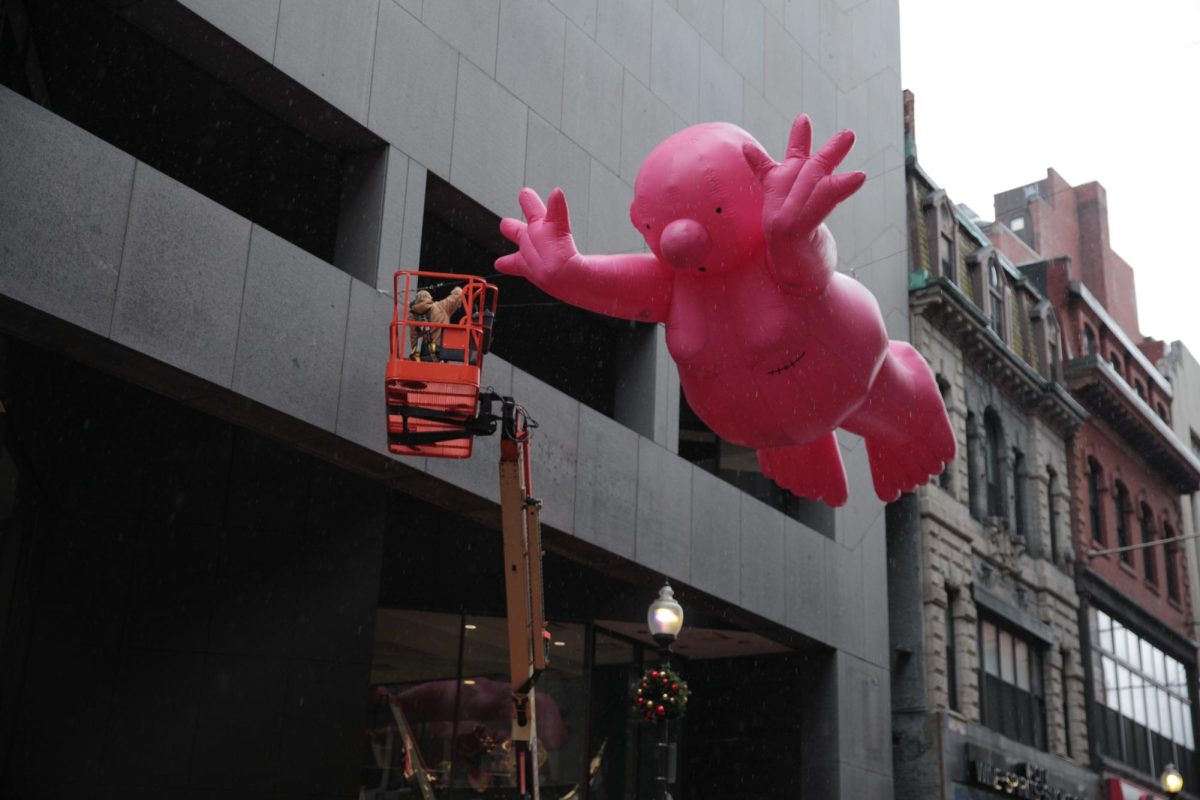By Nana Aisyah, news correspondent
When Benjamin Selesnick writes, he’s not just putting down his creative thoughts — he’s also asking questions about the world. Last spring, his hard work paid off: His story, “Davidson Park” was crowned runner-up for the prestigious 2017 Stony Brook University’s Short Fiction Prize.
Selesnick, a fourth-year English major at Northeastern, grew up in a creative family in Montclair, New Jersey, but he had difficulty finding a creative medium to adopt. His interest in writing piqued at 19, when he started reading books such as “Jesus’s Son” by Denis Johnson and “Old School” by Tobias Wolff that spoke to him. He then decided to pursue writing as a creative outlet and personal art.
“I felt like I empathized and related so much to the characters,” Selesnick said. “After recognizing the impact that these books have on me, I wanted to create that for someone else.”
“Davidson Park” explores the relationship between two old friends that reveals one’s vulnerability, asking fundamental and profound questions with regard to acceptance of of one’s beliefs.
Selesnick’s writing niche includes religion and drug addiction. He said he enjoys personal stories that capture a character’s depth and inner thoughts. Writing, for Selesnick, is a way to dig through personal questions and to experience the world from a different, complex perspective.In the story, an estranged friend pays his condolences and reconnects to a woman who talks to her dead father.
“I like to write parlour fiction. It’s usually about a few, or even honestly two, people having an intimate relationship, but in public,” Selesnick said. “I ended up writing a lot of family drama, because that’s what comes easiest to me.”
His younger brother, Jordan Selesnick of Tulane University, said he sees how writing became a part of Ben Selesnick’s identity.
“Writing is a facet of Ben’s life,” Jordan Selesnick said. “It is an outlet to express and answer some of the question he has for himself and the world.”
To launch his creative writing path, Selesnick began to submit his writing to literary magazines. He has been published by several magazines, such as Literary Orphan, The Cantabrigian and Anti-Heroin Chic.
This year, Amy Hempel, the author of four acclaimed short story collections, served as the judge for the Stony Brook University short fiction contest. She said Selesnick’s story speaks about the vulnerability and unearthing of one person’s source of comfort by an alienated loved one.
“This is a powerful and credible look at the deepest feelings, with an understated and affecting ending,” Hempel wrote about Selesnick’s piece in a press release received through e-mail on Oct. 25.
Selesnick took inspiration for the story from a girl that he dated who considers herself psychic. Even though Selesnick never really understood the circumstance, he didn’t try to needle the topic. To capture the inner confusion and uncertainty he felt, he tried to use his story to express that experience of his exasperation transforming into acceptance of her beliefs.
“[‘Davidson Park’] was completely done on a whim,” Selesnick said. “The writing process itself was very organic. It started out very short, at about six pages. Then I gave it to a friend of mine at Northeastern, and it didn’t seem like it was finished. So I wanted to create a story where the characters are not just the sounding board for each other.”
Thomas Corona, a longtime friend of Selesnick, attributed his tenacity, constant evaluation and dedication as the reason he was awarded as runner-up.
“He can’t just walk away from [his writing],” Corona said. “It’s always at the forefront of his mind, and he’s constantly looking at the narrative, and people he meets in his own life and try to incorporate them in his writing.”
The Stony Brook Short Fiction Prize is his first award. Following the early taste of success, Selesnick plans to pursue a master of fine arts degree in creative writing, where he will be able to write and teach simultaneously. To him, it’s all about where the opportunity lies.
He said his advice for students who are also planning to pursue an academic or professional career in writing is to write as much as possible and get the work out there. He also advises those students to find people to share their work with.
“It’s important to find a circle of people that you trust to critique your work,” Selesnick said.










